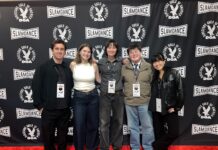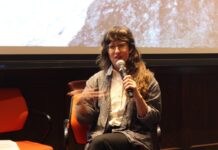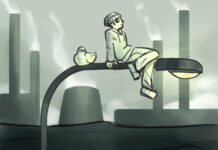Maybe you just escaped from the most excruciating exam you’ve ever taken at Oxy and you need to cleanse your soul. Or maybe your most cherished Marketplace meal has returned from a months-long hiatus and you’re practically sprinting to get there. There are countless moments just like these during college, but often the most memorable ones come with a soundtrack. Our editors share the songs that got them through the early days of undergrad — the good and the bad, the worse and the even more heinous. And who knows? These tracks could be exactly what you need to hear.
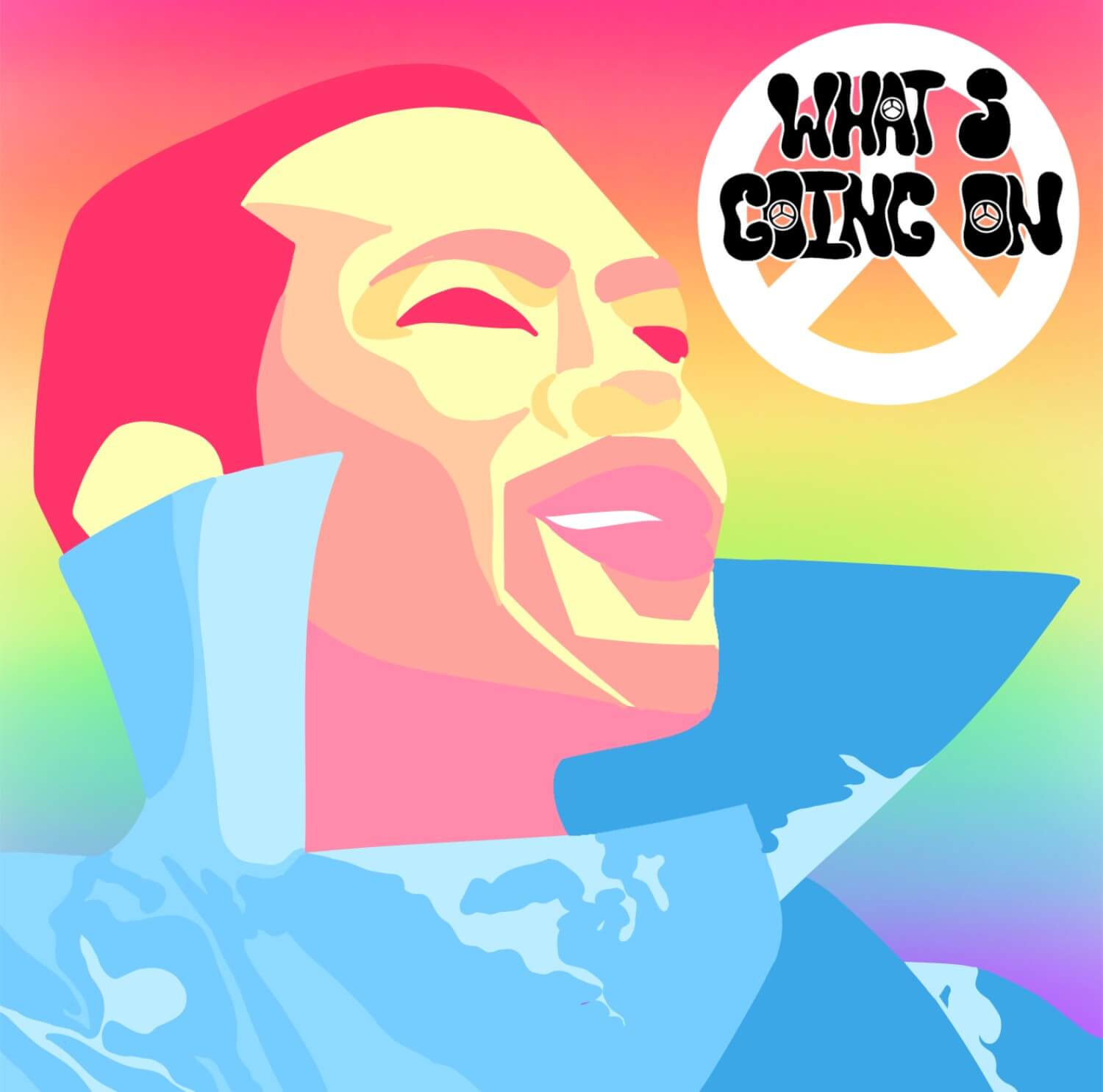
“What’s Going On” by Marvin Gaye
Josey Long, Sports Editor
Marvin Gaye’s call for peace in “What’s Going On” is exactly what I need to hear when I feel like lashing out at the world or falling victim to my own challenging circumstances. His references to wartime throughout the song (“There’s far too many of you dying” / “You see, war is not the answer”) resonate with my wish for stability amidst the chaos of college life, the Trump administration and international disarray. I, too, believe that “only love can conquer hate,” though I often feel helpless against the powers that be — whether that’s the pile of homework I’m slumped behind, or the new government policy stripping yet another group of their fundamental human rights I’m raging against.
“What’s Going On” reminds me that love and resistance can start small (“We’ve got to find a way / To bring some loving here today”). Not only is this song catchy and melodically entertaining, but it also forces me to reflect on my own negativity and assumptions. Gaye’s straightforward yet impactful lyrics (“Everybody thinks we’re wrong / Oh, but who are they to judge us / Simply ‘cause our hair is long?”) ask listeners to question our beliefs about what we may think is “wrong” or outside of the social mainstream. He advises us to lead with empathy rather than judgment, and communicate with those we view as different from us (“Come on, talk to me, so you can see”).
Even though the song was released in 1971 during the height of the Vietnam War, it still resonates (literally). As a whole, the entire “What’s Going On” album is one of my favorite forms of musical activism, but this song speaks to me more than others because Gaye uses simple questions to prompt significant action. He reminds us that we must first challenge our own limiting views to truly enact positive change, starting with the way that we talk to ourselves. When I score poorly on an exam, feel behind in life or criticize the way I look after a quick glance in the mirror, asking myself “What’s Going On?” forces me to recognize that criticism and try to understand where it is coming from. I can fight my own self-critic and fascism at the same time by replacing “brutality” with “understanding” and choosing love instead of hate.
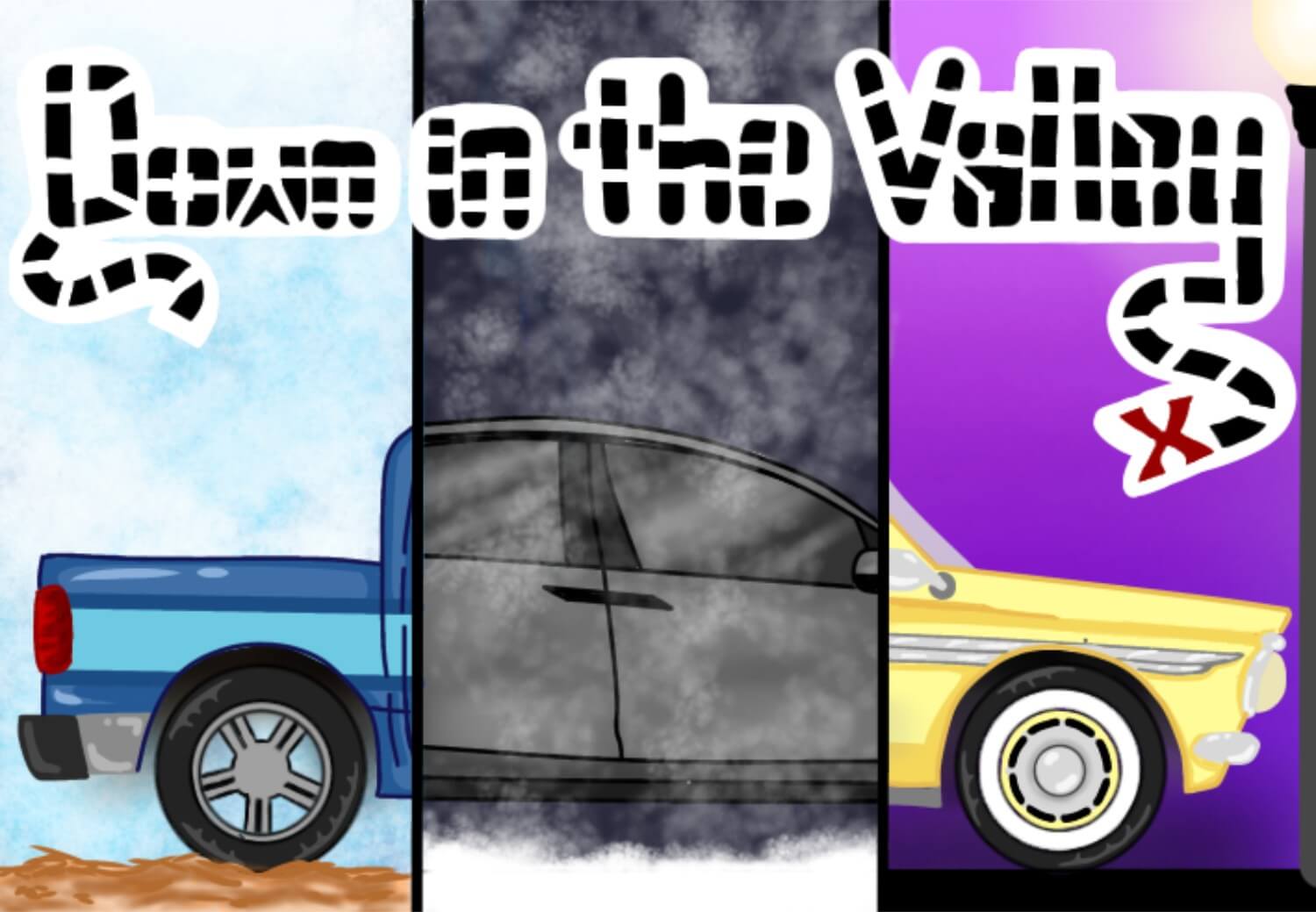
“Down in the Valley” by The Head and the Heart
Abigail Montopoli, Community Editor
I know that a city cannot claim a band, however, my home state, Washington, has a fair claim to several — Nirvana, the Foo Fighters and my personal favorite, The Head and the Heart.
I spent much of this summer in LA, but while home, I got to see The Head and the Heart open for The Lumineers at T-Mobile Park (go Mariners!). I have always come close to shedding a tear while listening to their biggest hit, “Rivers and Roads,” but found myself connecting most with “Down in the Valley,” a song I’ve always loved, but never found a personal connection with. Seeing the band live and hearing lead singer Jonathan Russell say that he developed the song while wandering aimlessly through Seattle drew me to “Down in the Valley” in a way I’d never felt before.
He sings: “I know there’s California, Oklahoma / And all of the places I ain’t never been to, but / Down in the valley with whiskey rivers / These are the places I will always go.” As the planes landing at SeaTac flew overhead, I thought of all the places I have been, and will go. The thought fills me with both excitement and nostalgia.
As my life changes and what I consider to be “home” adapts, I think about driving through the streets of Tacoma, with no destination in mind, seeing the Puget Sound and Mount Rainier. I think of my favorite perch in LA where I can see the whole city, or my dorm sophomore year. I think of the bench I would sit at and people watch next to the Charles River in Prague while studying abroad. Everywhere I look, I have places, I have memories. Nothing will ever take these from me. As I explore the world, I only want to see more. “Down in the Valley” reminds me of my readiness to grow up, but also takes me back to the place I grew up — and the places that have made me, me.
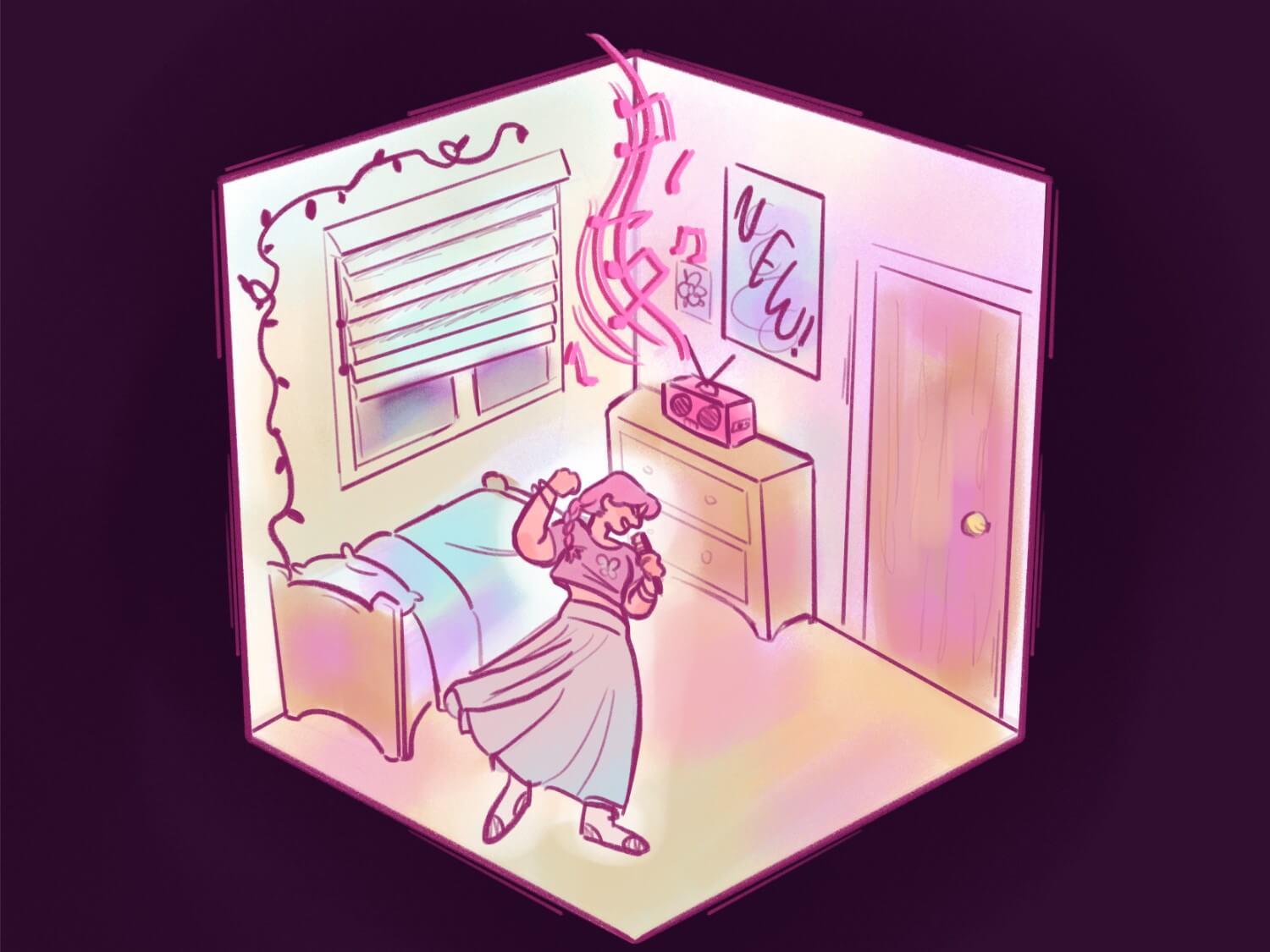
“Stereo Love” by Edward Maya & Vika Jigulina
Anna Beatty, Arts and Culture Editor
“Stereo Love” is one of those flashbacks that seems to haunt — or electrify — my life at any given moment. When this song came out, I was only 5, so I obviously did not get the opportunity to soak it up by dancing at the club or stumbling around sticky college dive bars during its peak popularity. However, it’s one of those beats that everyone seems to recognize, at least if you’re a Millennial or Gen Z.
Sometimes, I get sucked into earworms and repeat them over and over and still never get tired of them. “Stereo Love” has been one of my top 10 songs for the past four years. The lyrics aren’t too metaphorical or complex, and it’s the somewhat carefree mindset I have while bobbing my head to the iconic accordion melody that I crave. Maybe I gravitate towards the song because I feel comfort in the familiarity of the predictable buildup and beat drop. Perhaps a part of me longs for a taste of late 2000s party culture. “Stereo Love” is the track I put on to simply fill silence, and it follows me everywhere.
It seems like I have gone through every life stage at Oxy with it in the background. From being my hype-up song on the way to new student orientation, listening to remixes while cramming for Greek vocabulary tests and hearing it at the first Oxy party I attended, this Billboard Hot 100 throwback has inadvertently become the anthem of my adolescence.
“Stereo Love” is the soundtrack of my Oxy experience and forces me to confront the passage of time. It reminds me of lonely moments as a first year and feeling the weight of the world after getting a poor grade on an essay. Equally so, it reminds me of all my academic triumphs and friendships I’ve made here. As I begin my senior year, I hope “Stereo Love” continues to be a marker of everything and everyone I have interacted with at the college.
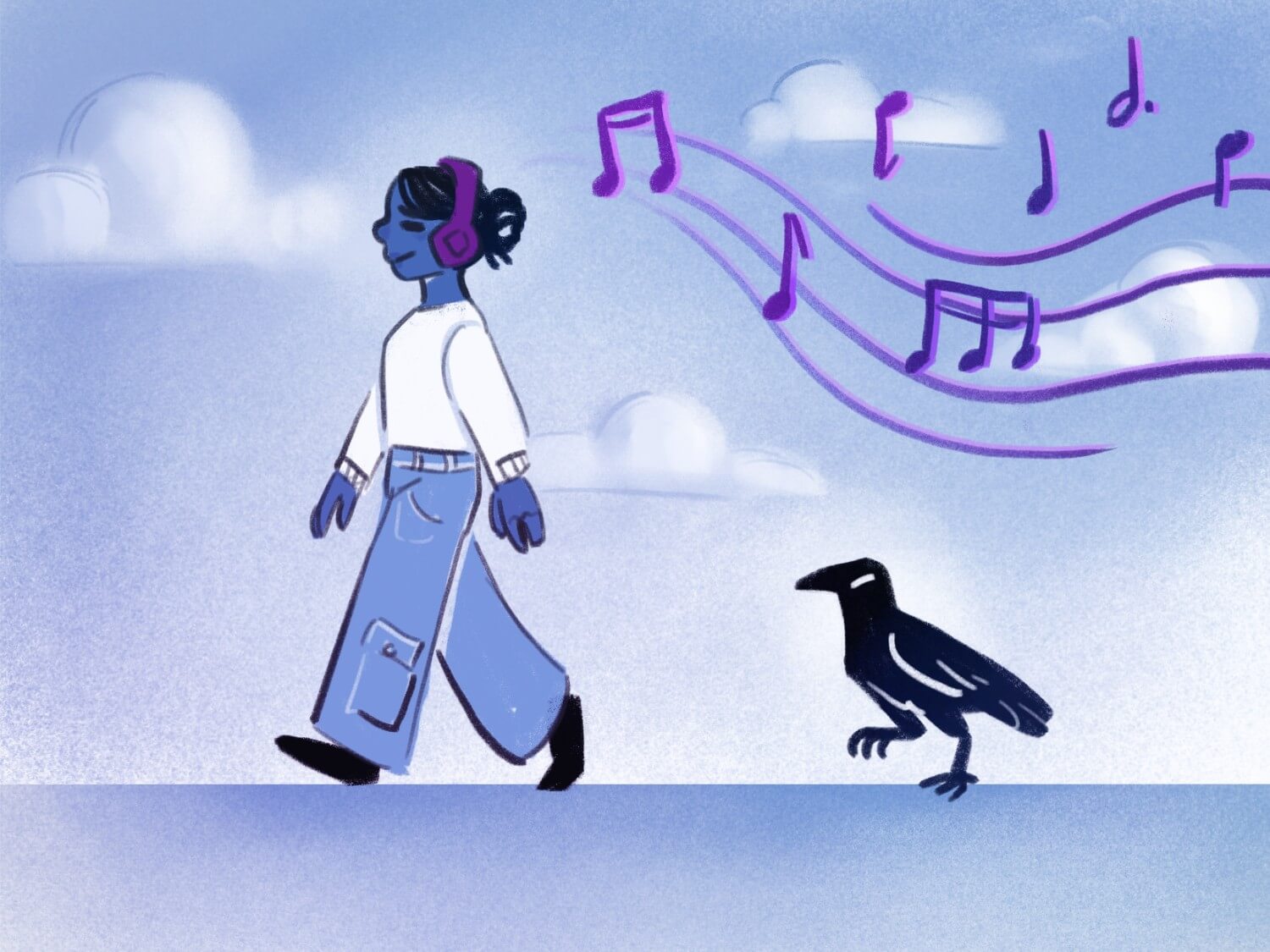
“Blackbird” by The Beatles
Jameela Bowo, Opinions Editor
Despite being an aughts baby, my parents made sure that my music taste lived up to their standards. They raised me on Queen, U2, The Police and The Beatles — their music becoming the songs that my sisters and I sang along to on the car ride to school and listened to as my dad played the guitar. Out of all the music my parents have introduced me to, The Beatles are the band we’ve bonded over most.
My childhood memories are intertwined with my parents lovingly singing along to “Strawberry Fields Forever” on our annual family road trips down Highway 101, tone deaf renditions of “Hey Jude” during our family karaoke nights and my sister singing “Across the Universe” while my dad accompanies her on his guitar on a chilly winter night. The Beatles have always made me feel connected to my family, no matter what I am doing or how far away from them I am.
I sat in my dorm room in Pauley during my very first week of college, overwhelmed by feelings of homesickness and uncertainty, and the song “Blackbird” by The Beatles felt like a warm hug from my family even though they were so far away. It felt familiar and comforting, like the sound of my sister’s laugh, the smell of my mom’s perfume and the colorful walls of my childhood bedroom.
The gentle plucking of the guitar strings paired with the tapping of Paul McCartney’s foot and the soft tweets of the birds gave me the space to stop and breathe in between the chaos. When I listen to this song, it feels like all of my worries and problems melt away and I am able to unclench my fists, take a step back and be present — it is the song that was there for me when I had to lock myself in a Berkus study room during finals week and the same song I played two weeks ago as I hugged my parents goodbye.
What started as a song that I listened to for the calming melody and simple cadences is now one of the most comforting songs that I always fall back on when I want to feel closer to my family.
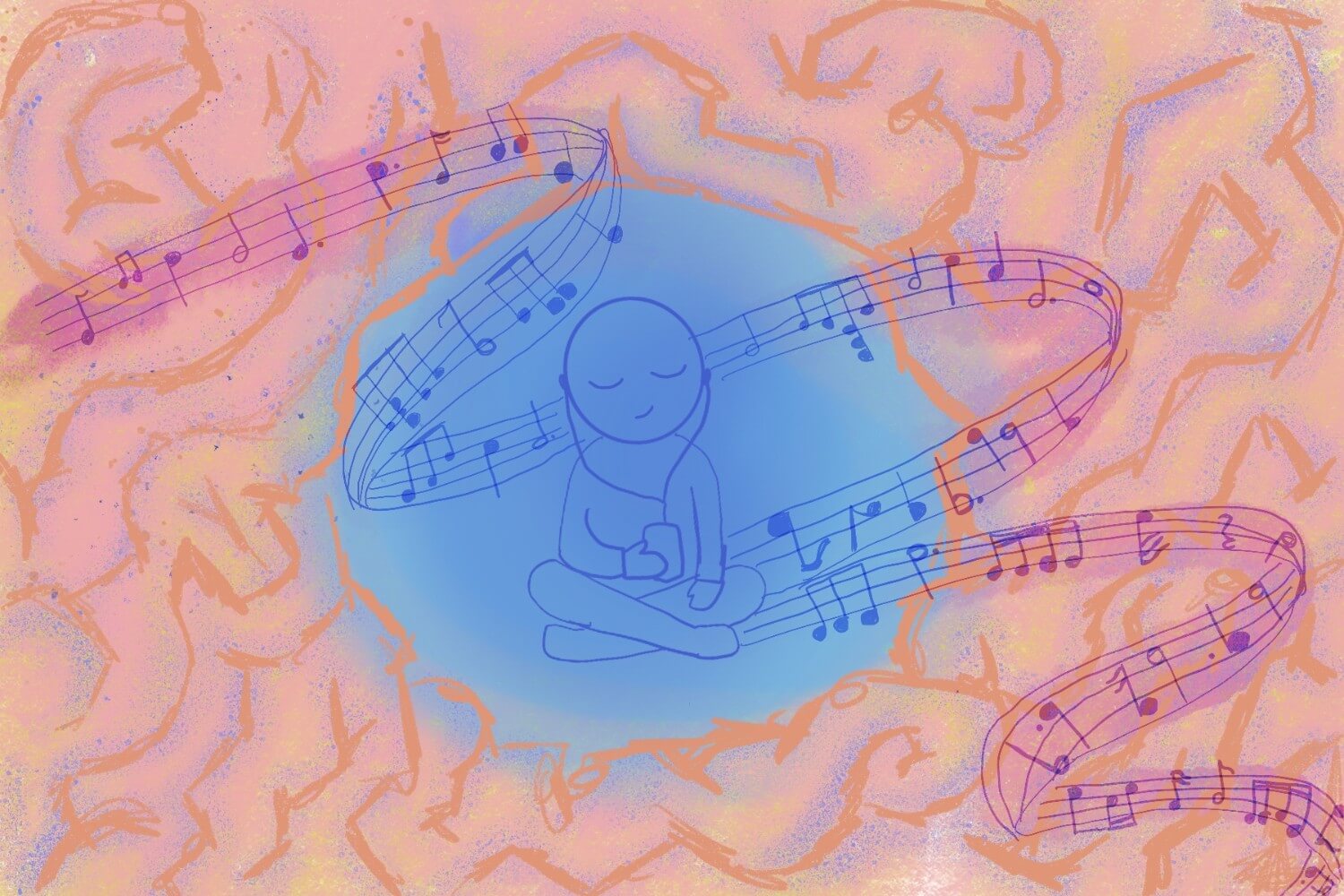
“Vienna” by Billy Joel
Jane Hutton, Media Editor
I don’t pay much attention to the lyrics of a song. It’s not that I’m uninterested; I have to concentrate to make out the lyrics. When I do take the time to look up the lyrics and really dissect a song, it can be a magical experience. When I first listened closely to Billy Joel’s “Vienna” during my first semester at Oxy, I did something I rarely do with music: I cried.
The opening lines, “Slow down, you crazy child / You’re so ambitious for a juvenile / But then if you’re so smart / Tell me why are you still so afraid?,” felt like a direct callout. During the midterms of my first semester at college, I tried to fit in a weekend conference. I didn’t really want to go, but my FOMO was lurking around the corner. In my mind, the right way to do college meant saying yes to every opportunity that might prepare me for a future where jobs and housing are scarce. At the same time, like many college students, I felt pulled in different directions by the many social causes on campus, each one important and urgent in its own way. I was balancing different objectives, all while supposedly having the best time of my life. The expectations I was drowning in didn’t allow me to say no. I ended up stressing myself sick and missing the conference anyway.
“Vienna” provided a sense of comfort comparable to a parent’s advice. Billy Joel has explained that the reference to the city of Vienna comes from watching older people there living full and purposeful lives. For me, when he croons “Vienna waits for you,” he’s assuring me that I will eventually figure out who I am and what my place in the world is, but I have to be patient for a journey that doesn’t need to and won’t happen all at once. So if you’re anything like me and feel overwhelmed juggling life, take a quick break and sit down to listen to “Vienna,” lyrics and all.
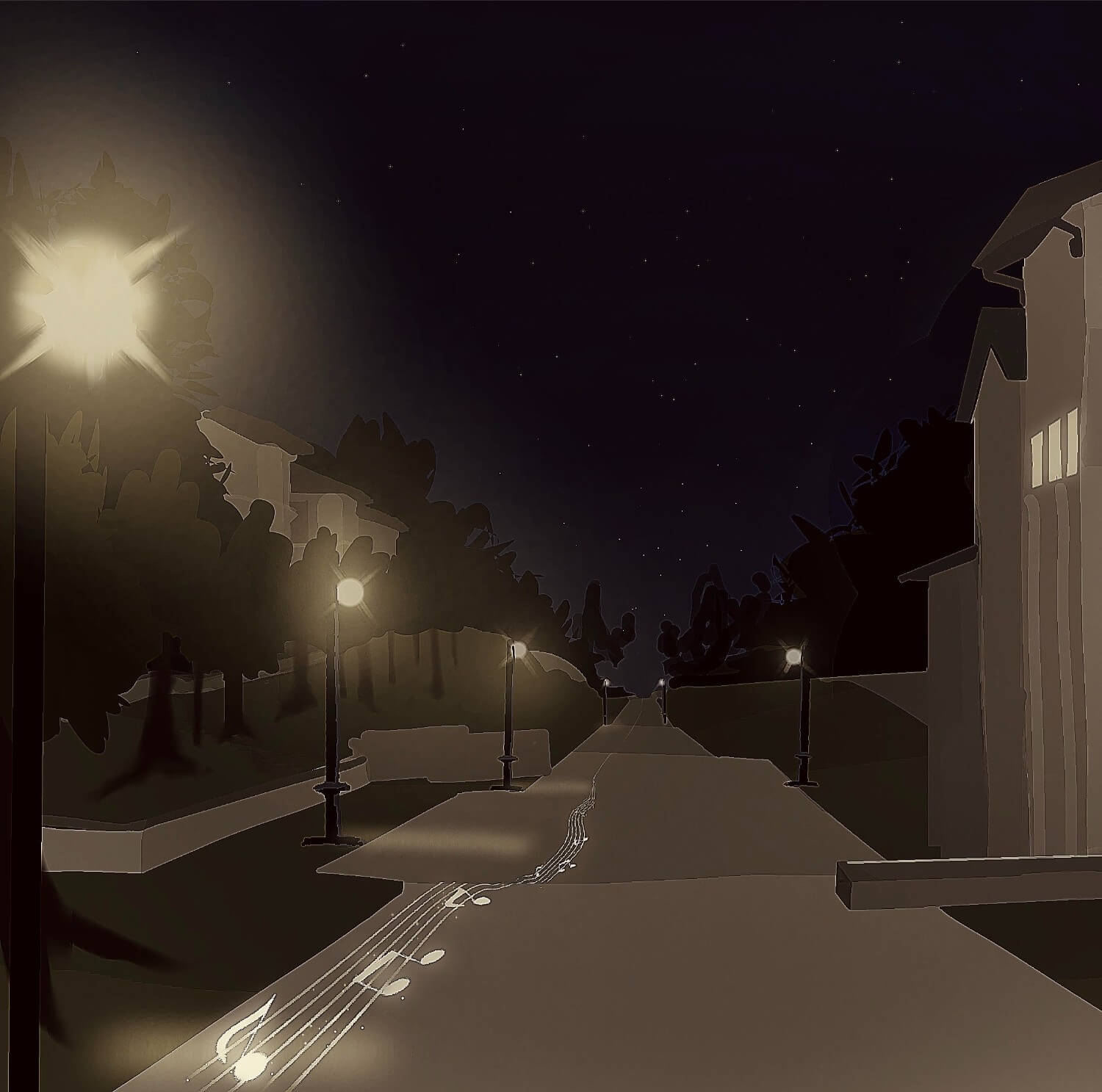
“De Selby (Part 1)” by Hozier
Kawena Jacobs, News Editor
“At last when all of the world [was] asleep…” I could step out of Newcomb into the coolest the air would be for at least another month and be somewhere else — home, at its best, when the leaves are turning and your breath has yet to cloud with each word. I could pretend that staying up so late the birds chirped at my footfall wasn’t foolish, that it was my portal. I could be alone and really think. Finally. As I hit play for the seemingly hundredth time on this song, I wondered why the beginning of my sophomore year was such an insurmountable burden of missing Pennsylvania and questioning why I ran so far from it. The year before didn’t make me feel like this, all wistful and lost. I had a million questions with no answers, and I thought the only way I could make it through the semester was to somehow figure them out (preferably before finals). So of course it didn’t take long for me to crash and burn, nowhere closer to settled than I was at the very start of the fall. It was only during my wandering in the early hours on an autumnal Tuesday that I had an epiphany to Hozier’s lyrics like I was hearing them for the first time.
“Your reflection can’t offer a word / To the bliss of not knowing yourself.” It was absurd for me to consider the idea that not knowing myself was something to be relished, something rapturous even. But then it wasn’t. Perhaps there is nowhere better than college to be unsure — about what your future holds, who you’ll spend it with, where you’ll land when it’s all said and done. It is a privilege to roam. You won’t find everything you’re looking for in one year here, or all four, but that can be a comfort instead of a fear. I write this amidst a late night, no surprise, listening to “De Selby (Part 1),” and I do not flinch at the unknown the way I used to. I will close my laptop and go to bed, and the morning will bring what it brings.
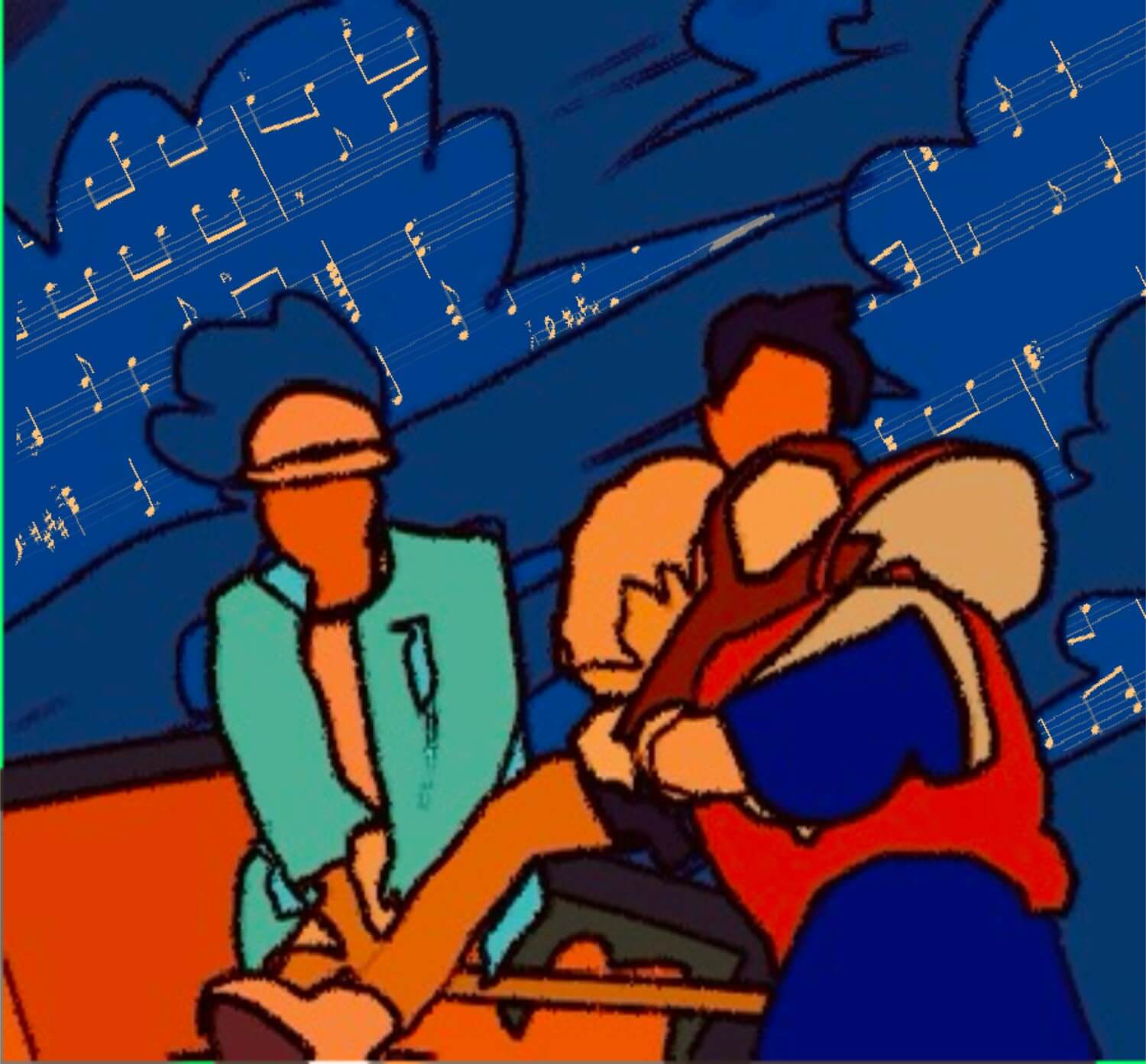
“After the Earthquake” by Alvvays
Ava LaLonde, Editor in Chief
The momentum of my first year of college was intoxicating. I felt like I had been swooped up into a rhythm, a symphony that played itself, of newness. My previous summer was particularly difficult, and most of my days were spent alone in my house. Stepping into Occidental felt like the moment you take in a gasp of fresh air after holding your breath underwater.
The song “After the Earthquake” by Alvvays provided me the bright notes, the pop sounds that lined up perfectly with the technicolor world of my new surroundings (despite being about 45 minutes away from my house).
It’s not so much about the lyrics for me. It hardly ever is, but more about the weightlessness of the singer’s vocals, the sparkle of the main guitar line that repeats, the key change to a higher register in the last portion of the song. Maybe it sounds fairly similar to “Just Like Heaven” by The Cure, maybe I’m completely wrong. Whatever it is, I’ll always listen fondly to Alvvays, and to this song that helped me fill some space in my brain that otherwise, quite probably, would have been filled with anxious thoughts.
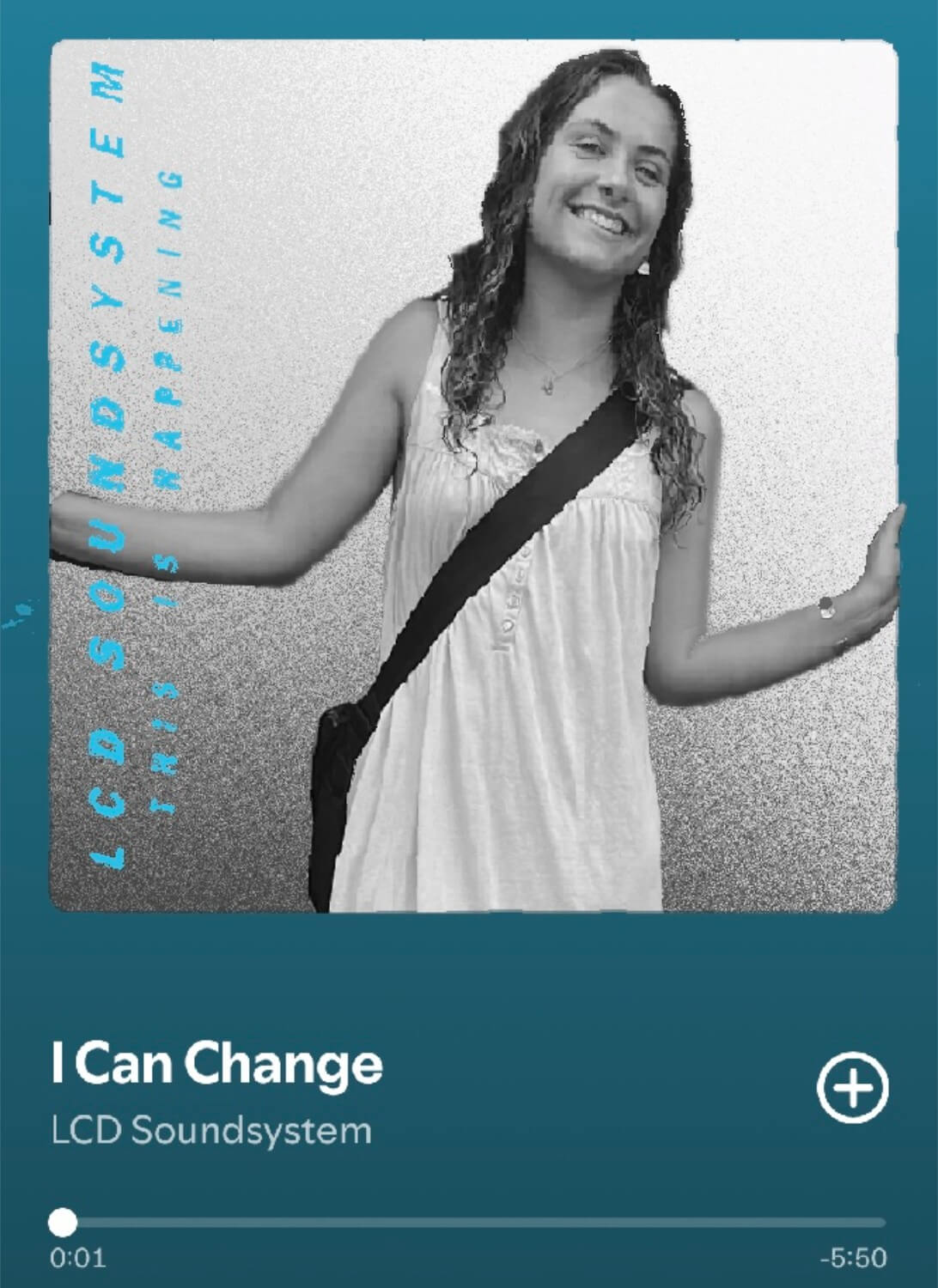
“I Can Change” by LCD Soundsystem
Nora Youngelson, Managing Editor
“I Can Change” is from the album This is Happening, by LCD Soundsystem. For me, what was happening was college, and suddenly I was faced with the reality of the situation: 3,000 miles away from home and four years in front of me. During my first year at Occidental, I turned to “I Can Change,” a song that I have listened to and loved for a long time. The pulsing rhythm of the bass guided me through the early morning fog, first year seminars, bouts of homesickness and late night library sessions, as I curled up in one of the arm chairs. I played the song constantly and for everyone I met. At the time, I don’t think I was aware of the themes in the song that applied to my life, but retrospectively, I felt silly for not noticing how well the song points out a common discomfort.
I, like many other first-year students, was stuck between the desire to change and to remain true to myself. In “I Can Change,” the first chorus repeats the line “never change,” but every chorus after the lyrics instead are “I can change.” After an adventurous gap year, I was certainly in need of some stability, and to me, that meant never changing.
However, my attempts at unwavering self-assertion did not last very long. That being said, I don’t think I changed immediately, or all at once. I didn’t get a drastic haircut or decide to be a STEM major. Even the changes that I was aware of probably were not evident to those around me until much later. But I did let go of some stubborn holdovers and allowed myself to change and adapt to my surroundings. I started playing Ultimate Frisbee, a sport that I once laughed at. I applied for a job at the newspaper, even though it terrified me. I decided I did not want to be a vegetarian. I tried things I was bad at and things I am still bad at. While these changes are small and a bit trite, they piled up, tipping the precarious balance of staying true to yourself and letting the world change you.
James Murphy, LCD Soundsystem’s lead singer, sings the word “change” 56 times over the song’s base of electronic, synth-pop rock. He is right; that change is constant. Three years later, I can say that I have changed 56 times, and then some.
![]()

















